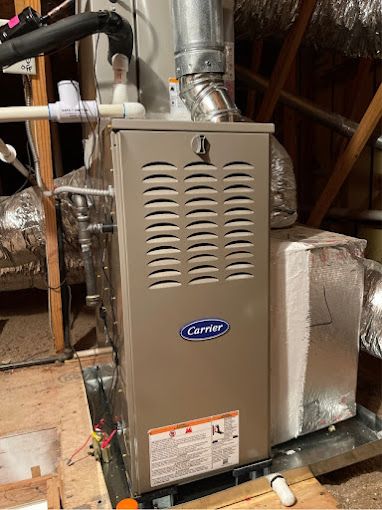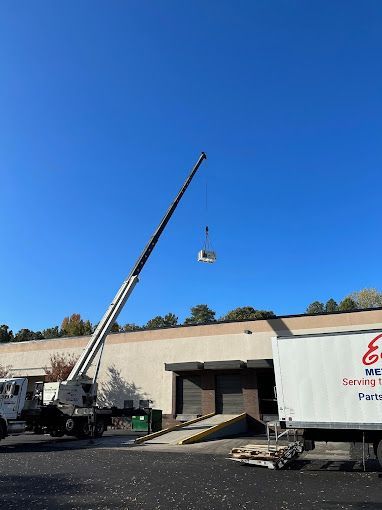March 6, 2024
Choosing the right heating system for your residential or commercial property is a crucial decision that directly impacts your comfort, energy efficiency, and long-term cost savings. With so many heating options available in the market, it can become overwhelming to identify the best system that caters to your specific needs. As an experienced heating and cooling company offering heating services, repair, replacement, and maintenance, we possess the knowledge and expertise to guide you through this process. We discuss the vital factors to consider when selecting the perfect heating system for your home or business, ensuring you make an informed decision that maximizes your comfort and energy savings.
I. Understand the Types of Heating Systems
One of the first steps in choosing the ideal heating system is understanding the different types of heating systems available. Let’s explore some common options to consider:
Furnaces: Furnaces are the most popular type of heating system in the United States. They work by heating air and distributing it throughout the property using ducts and vents. Furnaces can run on natural gas, oil, or electricity.
Heat Pumps: Heat pumps are energy-efficient systems that work by moving heat from one place to another. They can provide both heating and cooling and are ideal for mild climates. There are two main types of heat pumps—air-source heat pumps and ground-source (geothermal) heat pumps.
Radiant Heating: Radiant heating systems circulate hot water or heated air through pipes or panels beneath the floor or in the walls and ceilings, providing consistent and even warmth. Radiant heating is popular for its quiet operation and improved air quality.
Our professionals can help you navigate these heating system options and choose one that meets your unique needs based on factors like climate, energy costs, and property size.
II. Consider the Fuel Source
An important aspect to consider when choosing a heating system is the fuel source. Here are some common fuel types:
Natural Gas: Natural gas furnaces are typically the most economical option for heating, as gas is an affordable and abundant fuel source. Gas furnaces also heat homes quickly and efficiently. However, they require a gas supply, and installing a gas line can be costly if one is not already present.
Oil: Oil-fired heating systems provide efficient and effective heat but can be relatively expensive to operate. They require oil storage tanks and regular fuel deliveries, which can add to the maintenance burden and environmental concerns.
Electricity: Electric heating systems, including heat pumps and electric furnaces, are cost-effective in areas with low electricity costs. They are also easier to install and maintain compared to gas or oil systems. However, they may not be as efficient for heating larger spaces, especially in colder climates.
Discuss your fuel supply options with our technicians to determine the most appropriate choice for your property.
III. Evaluate Heating System Energy Efficiency
Energy efficiency is a critical factor to consider when selecting a heating system, as it directly impacts your energy consumption and the system’s overall cost. Heating systems are rated based on their Annual Fuel Utilization Efficiency (AFUE) or Heating Seasonal Performance Factor (HSPF) for heat pumps. The higher the AFUE or HSPF rating, the more energy-efficient the system is.
Our heating services experts can provide you with information on various heating systems’ efficiency ratings and help you find a high-efficiency unit suited to your budget and needs, offering you the best value.
IV. Assess Your Property's Insulation and Ventilation
Before investing in a new heating system, it’s crucial to assess your property’s insulation, ventilation, and air sealing. Proper insulation and ventilation can lower your heating bills, prevent heat loss, and ensure consistent indoor temperatures. Inadequate insulation may cause your heating system to work harder than necessary, leading to higher energy consumption and wear on the system.
Our specialists can assist you in identifying and addressing any insulation and ventilation issues to maximize your new heating system’s performance and prolong its lifespan.
Conclusion
Selecting the right heating system for your residential or commercial property involves careful consideration of various factors, from the type of heating system and fuel source to energy efficiency and property insulation. Making the right decision ensures optimal performance, energy savings, and long-lasting comfort. Don’t leave this important decision to chance—reach out to our expert technicians at Airmaster Heating & Air Conditioning for comprehensive guidance and professional heating services in Alpharetta, ensuring your new heating system provides the comfort you deserve.
REQUEST SERVICE
Please click the book online button below to book appointment with AirMaster Heating & Air.





